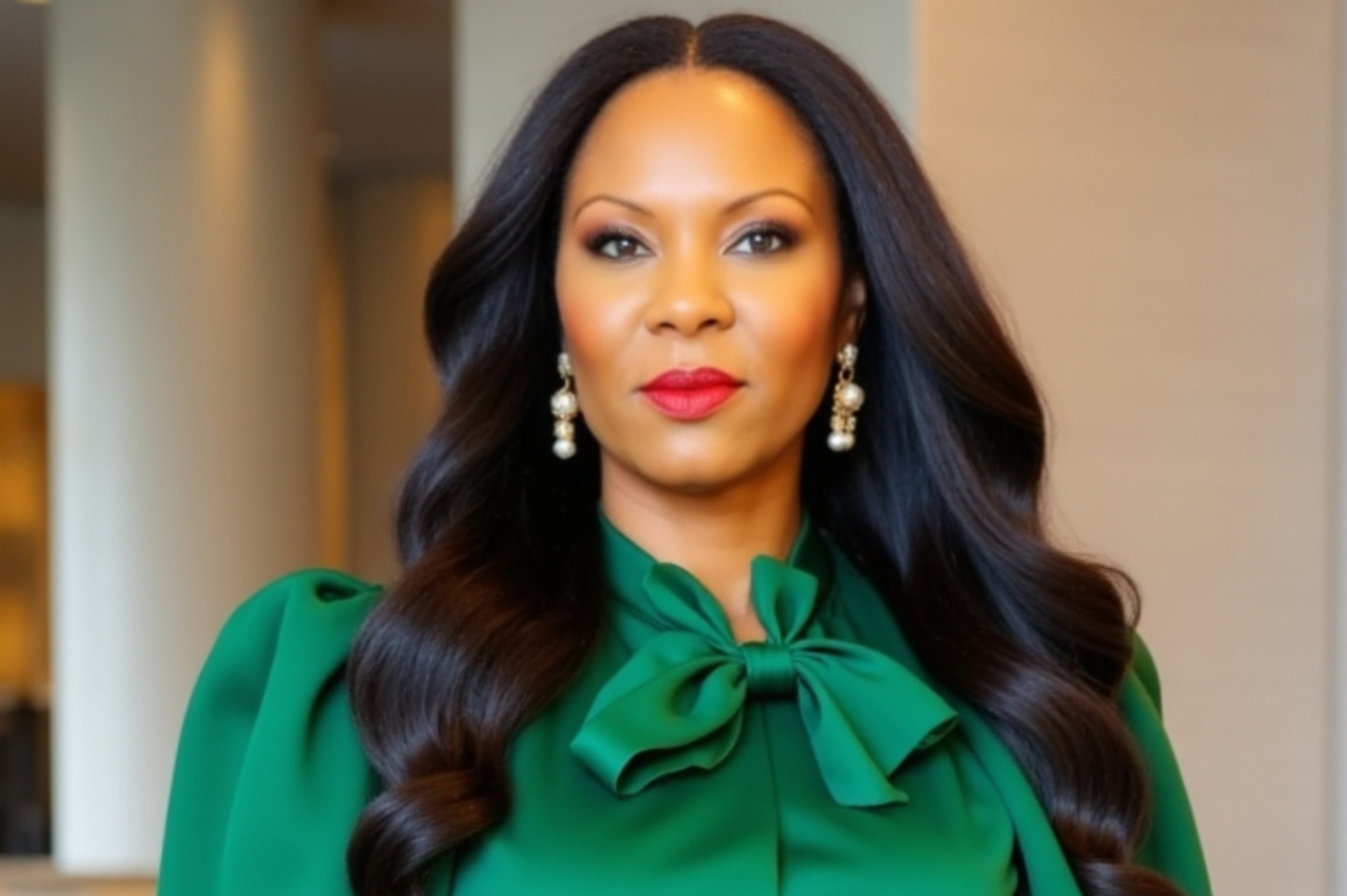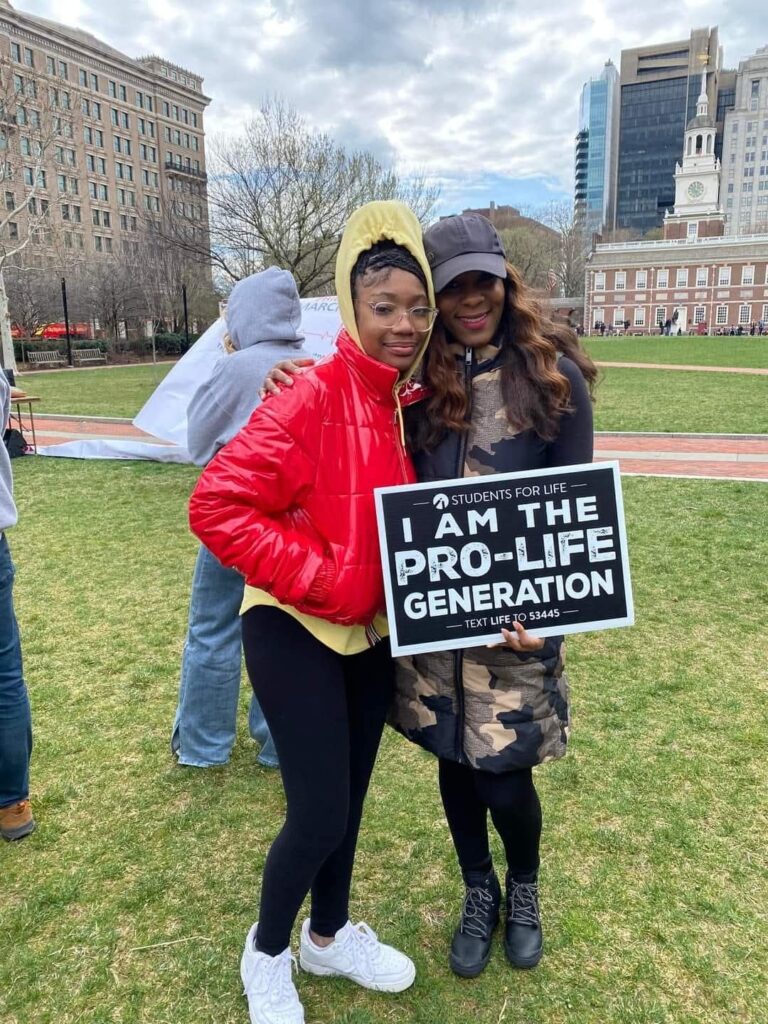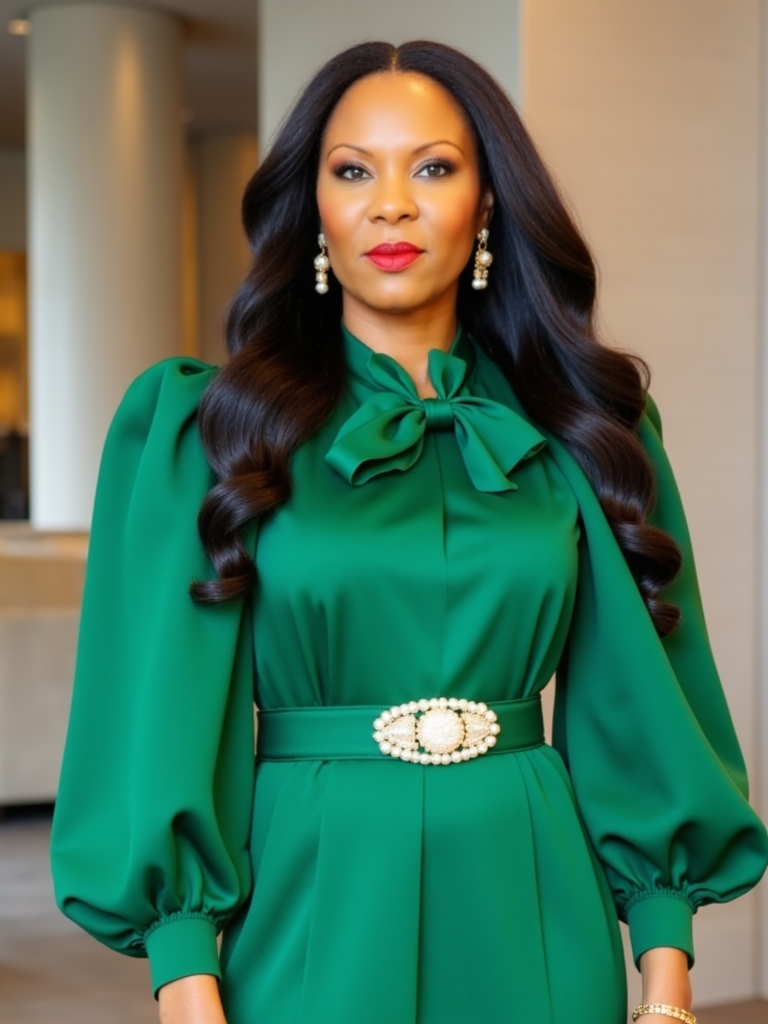Phaedra Anderson: The Voice of Resilience and the Fight for Life

It’s 5:30 PM on a Wednesday, and Phaedra Anderson is on the other end of the line, her voice warm yet unwavering. There’s a steadiness about her, the kind that comes from walking through fire and coming out refined, not burned. Her story is one of resilience, faith, and an unshakable commitment to advocating for the unborn—though she never expected to become that voice.
Phaedra grew up in a traditional home with her mother, father, and siblings. “My father’s side of the family was deeply rooted in the church, so I’ve always had a strong foundation in Christianity, she shares. “My great-grandmother was a preacher at a time when it wasn’t common for women to preach, and my great-great-grandmother was one of the first Black women to have a passport, travel to France, and preach the gospel in their native language. So, I come from a long line of women who boldly defied traditions, blazing the trail for Christ,” she says.
Phaedra’s life took a dramatic turn when her father passed away when she was just six years old. “My mother fell into addiction. She was physically there, but not really. I had to raise myself—and, in a lot of ways, raise her,” she says. “I became a woman-child, forced to grow up too quickly. I saw things I shouldn’t have seen at such a young age.”
At 13, she sat alone in a free clinic, staring down an unexpected truth. “The test was positive,” she recalls. “They called me into a small office and told me I was six to eight weeks along. My due date? January 16th.” She pauses. “Then, without hesitation, they started talking about abortion. Not once did they ask what I wanted. Not once did they explain what an abortion even was. They just saw a 13-year-old girl who was pregnant and made the decision for me or at least, they thought they did.”
Phaedra wasn’t alone in that reality. In her community, conversations about sex, responsibility, or the sanctity of life were overshadowed by survival.
“I grew up in the 1980s, a time when crack cocaine was flooding the streets, destroying homes, and tearing families apart. Because of that, these important lessons were often left out of the conversation. Teenage pregnancy was at an all-time high, and unfortunately, many of us grew up using abortion as a form of birth control. Most of us were never taught that sex is a responsibility or that life begins at conception.”
After learning that she was pregnant Phaedra recalls taking the papers they gave her to her mom. “What she did shocked me more than anything. She took the abortion papers and tore them up right in front of my face, saying, “We don’t get abortions in this family!” Phaedra revealed to me that her mom was pregnant at 13 years old, too, and her mother took her to have an abortion. “My mom wasn’t going to repeat that cycle of death. She didn’t want her child to go through the same mental and emotional struggles she faced after her abortion. The day she said “No” to me was the day the spirit of murder was broken off our family because there would not be another generation cut off from my bloodline through abortion.” A few weeks later, Phaedra miscarried. But it would be years before she truly stepped into her pro-life calling.
“I was once told that I fight so hard against abortion, because of my guilt for the abortion that I had. But the thing is, I have never had an abortion.”

In her early 20s, Phaedra accompanied a friend to an abortion clinic, confidently supporting a stance she then believed in. “I was pro-abortion,” she admits candidly. “I thought it was a woman’s right, her choice.” Everything changed when she rededicated her life to God at 27—returning to the faith she first embraced as a child. “One day, while praying, God revealed something profound to me: ‘You are an accessory to murder.’ Her voice shifted as she remembers the weight of those words. “He took me back to that clinic and showed me how I hadn’t done anything to stop it. In the courts of heaven, I was marked as an accessory to murder. That changed everything for me.”

Phaedra is aware that her mission is polarizing. She anticipates pushback, yet she’s ready for the hard conversations. “What about cases where the mother’s life is at risk?” I ask, echoing a question that often arises in the abortion debate.“I believe those situations are deeply personal and have to be made by the woman or her family. That is a medical procedure,” she says, measured, careful. Then she adds, “But I want to be clear: the majority of abortions do not fall into that category. Most are chosen as a form of birth control.”
And she doesn’t just talk—she acts. At a maternity home for women facing unplanned pregnancies, Phaedra is there, on the ground, doing the work. “We create a loving environment where women can reset their lives,” she says. “Some come in abortion-minded, but they leave transformed and empowered.” She recounts the story of a young woman who arrived hopeless, convinced she couldn’t be a mother. “She told me, ‘I can’t do this. I don’t have the means to support a child.’ But after receiving our care, she held her baby and said, ‘I never knew I could love like this.’”
Phaedra’s work is also supported by a group of women she affectionately refers to as the “FB Aunties.” “These women are the heartbeat of what I do,” she says. “I’ve raised over $10,000 for women and children facing challenging circumstances. All thanks to the FB Aunties. They’ve furnished rooms, paid rent, and provided essentials—creating a space for healing. But what they give is more than material. It’s hope, encouragement, and love.” She continues, “The FB Aunties embody the love of Christ. They don’t wait for perfection. They simply give, trust, and love. They go above and beyond, every time. These women are the village outside the village for women and children in need. And I’m so thankful for them.”

Phaedra doesn’t shy away from the hard conversations—not even the ones that the pro-life movement often avoids. “Women who have had abortions carry wounds that no one talks about,” she says. “We offer healing, guidance, and prayer. It’s not just about saving babies. It’s about healing women, too.”
Her approach is deeply rooted in love and compassion, not condemnation. “I want women to know they are not alone,” she asserts. “God loves us all, and forgiveness is available for those who have had abortions. But we must also talk about the spiritual implications and the healing that needs to take place.”
As our conversation drew to a close, Phaedra leaves me with a profound message: “Let life come through.” This mantra represents her life’s work, a commitment to honoring the sanctity of life and empowering others to embrace their worth and purpose. Phaedra stands as a beacon of hope- a voice for the voiceless, and a champion for the unborn and their mothers.


Phaedra Anderson is a true women of God and has a heart after Gods own heart Her story is very important to tell and it’s heart felt. Her story truly can help change the life’s of some many women who are broken and lost.